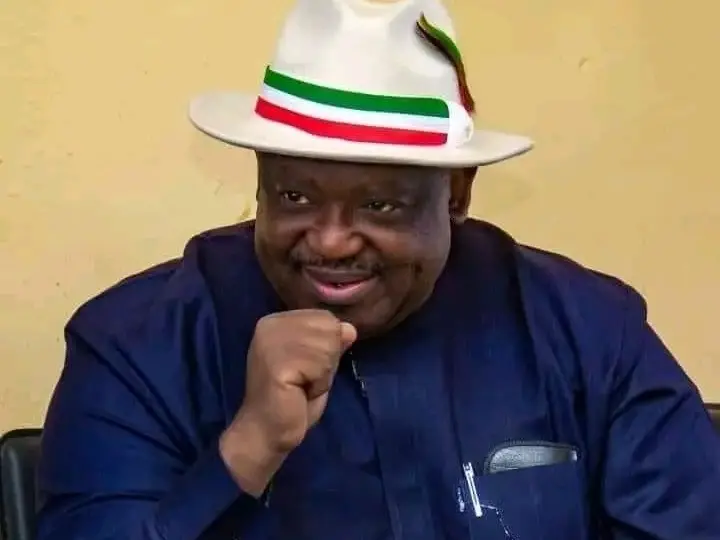NEWS
Tribunal confirms PDP’s Mutfwang as Plateau gov, trashes APC’S petition

The Plateau State Governorship Election Petition Tribunal, located in the bustling city of Jos, has stamped its affirmation on the victory of Caleb Mutfwang, the standard-bearer of the Peoples Democratic Party (PDP).
The tribunal’s decision effectively dismisses the challenge brought forward by Nentawe Goshwe, the flagbearer of the All Progressives Congress (APC).
The March 18 governorship showdown saw Caleb Mutfwang emerge triumphantly with a tally of 525,299 votes, thereby clinching the coveted position of Plateau State’s Governor. His closest contender, Yiltwatda, representing the APC, amassed a total of 481,370 votes. This keenly contested race, with a margin of less than 45,000 votes, had captured the attention and sentiments of the residents of Plateau State, setting the stage for a suspense-filled post-election scenario.
TopNaija.ng gleaned from reports by The PUNCH that the Independent National Electoral Commission (INEC) had, without hesitation, declared Mutfwang the victor of this political face-off. The electoral body, known for its role in ensuring the sanctity of the nation’s democracy, thus positioned Mutfwang as the rightful successor to the gubernatorial throne.
Yet, the tribunal’s days were far from uneventful. Prior to the APC’s petition, Alfred Dabwan, the ambitious governorship candidate of the New Nigeria People’s Party (NNPP), had lodged a complaint before the esteemed tribunal. His grievance revolved around a purported omission by INEC, which he claimed failed to feature his party’s logo on the official ballot. For Dabwan, this alleged oversight was not a minor clerical error but a grievous blunder that threatened the integrity of the entire electoral process.
His bold move sought nothing less than the outright nullification of the poll’s results. The ramifications of such a decision, if accepted, would have been seismic, potentially plunging the state into a whirlwind of political uncertainty and public outcry.
However, in its unwavering commitment to justice and the rule of law, the tribunal adjudicated on the matter and subsequently dismissed Dabwan’s petition. This decision underscored the tribunal’s belief in the legitimacy and validity of the conducted polls, much to the relief of Mutfwang’s supporters and the chagrin of Dabwan’s followers.
The twin verdicts from the tribunal – in favor of Mutfwang and against Dabwan’s petition – serve as a testament to the resilience of the Nigerian electoral process. It sends a clear message to politicians, parties, and the public at large: that the judiciary remains an impartial custodian of the nation’s democracy.
As Plateau State gears up for the next chapter under Caleb Mutfwang’s leadership, the populace looks forward with hope and anticipation. The challenges are many, and the expectations are high. Yet, the recent rulings have reaffirmed faith in a system that seeks to give every grievance a fair hearing and every victor their rightful place.
Plateau State, with its rich tapestry of culture, diversity, and potential, deserves nothing less than leadership that acknowledges its past, understands its present, and most importantly, envisions a brighter future. The political stage is now set; the actors are in place, and the next act of Plateau State’s intriguing story is about to unfold.
Caleb Mutfwang is married to Helen Caleb Mutfwang and the marriage is blessed with three kids: Timothy, Nanbam, and Enoch.

